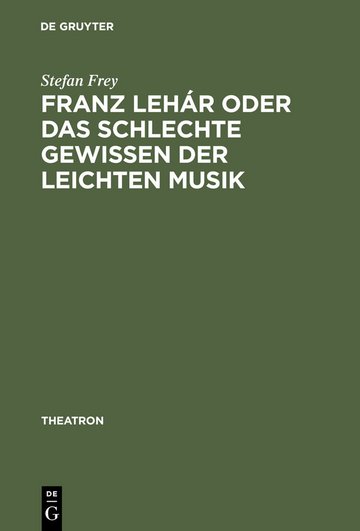Franz Lehár oder das schlechte Gewissen der leichten Musik

| Autor | Stefan Frey |
|---|---|
| Verlag | Walter de Gruyter GmbH & Co.KG |
| Erscheinungsjahr | 1995 |
| Reihe | TheatronISSN 12 |
| Seitenanzahl | 237 Seiten |
| ISBN | 9783110935141 |
| Format | |
| Kopierschutz | Wasserzeichen |
| Geräte | PC/MAC/eReader/Tablet |
| Preis | 109,95 EUR |
Franz Lehár (1870-1948), 'the composer most frequently performed within his own lifetime', still represents an unresolved dilemma for the historiography of music. In terms of modernism his music is of significance as a negative contrast to the products of the avant-garde, a significance largely bound up with the implications of operetta on the plane of cultural sociology within the general aesthetic context of the 20th century. Thus the question posed by operetta has little to do with aesthetic evaluation and a great deal to do with historical content. If, as Adorno suggests, 'art for entertainment purposes is in social terms the guilty conscience of its serious counterpart', then Lehár's operettas, hitherto neglected by musicologists as not warranting serious attention, would in fact demand to be taken seriously as the aesthetic guilty conscience of light music.
















